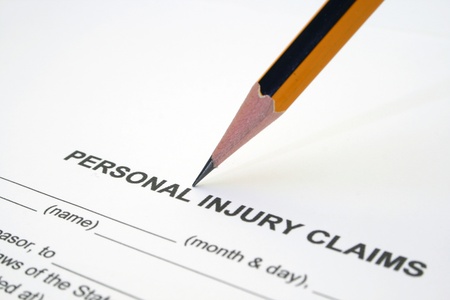
Each day, many individuals suffer injuries as a result of an accident or incident that significantly affects their ability to complete their basic daily responsibilities. One common cause of the inability to complete basic tasks is the need for care and treatment that will heal the injuries incurred. However, many individuals do not have the resources to obtain proper care and treatment. Because of this, individuals often forego crucial services or obtain loans which result in liens to obtain services. Our attorneys know that while these services are necessary, they can significantly impact any award of recovery. If you or your loved one has been injured in an accident or incident, contact Colombo Law today.
What are Liens in Personal Injury Actions?
In personal injury cases, liens occur between an injured party and a provider of services. There are several different types of liens. However, the basic premise of liens are that the amount of the lien will be fully paid from any award recovered in a personal injury lawsuit. Any liens must be paid in full prior to releasing any funds to an injured party. If any liens are not paid in full, both the injured party and the lawyer or law firm that released the funds may be sued and found liable to pay the remaining balance of the lien.
Common Types of Liens in Personal Injury Actions
There are several types of liens that may arise in personal injury cases. The most common liens include:
- Medical liens: Medical Liens are by far the most common type of liens in personal injury cases. Medical liens are liens placed on a personal injury lawsuit by the individuals who paid for your medical costs. Many times, when a personal injury lawsuit is filed, the funds have already been paid through one source or another, like one’s own health insurance policy. However, when the funds are paid back by the negligent party, the insurance company wants repayment for the funds that were expended.
- Hospital liens: In some cases, when the injured party does not have health insurance, the hospital may still perform services without prompt payment and file a lien to obtain payment from an award.
- Medicaid liens: If an uninsured party applies for Medicaid to cover the costs of treatment, Medicaid will also issue a lien to obtain repayment from any funds that are recovered.
Hire an Experienced Personal Injury Attorney
Liens can quickly get out of control. However, an experienced attorney can help you negotiate each of your liens. For help with your personal injury action, contact Colombo Law. The Colombo Law firm is located in Morgantown, West Virginia. Our attorneys are experienced personal injury lawyers who successfully handle hundreds of personal injury claims each year, obtaining justice and monetary relief for our clients. If you or your loved ones wish to file a personal injury claim, contact Colombo Law today for a risk-free initial consultation to get you or your loved one the assistance you deserve.










